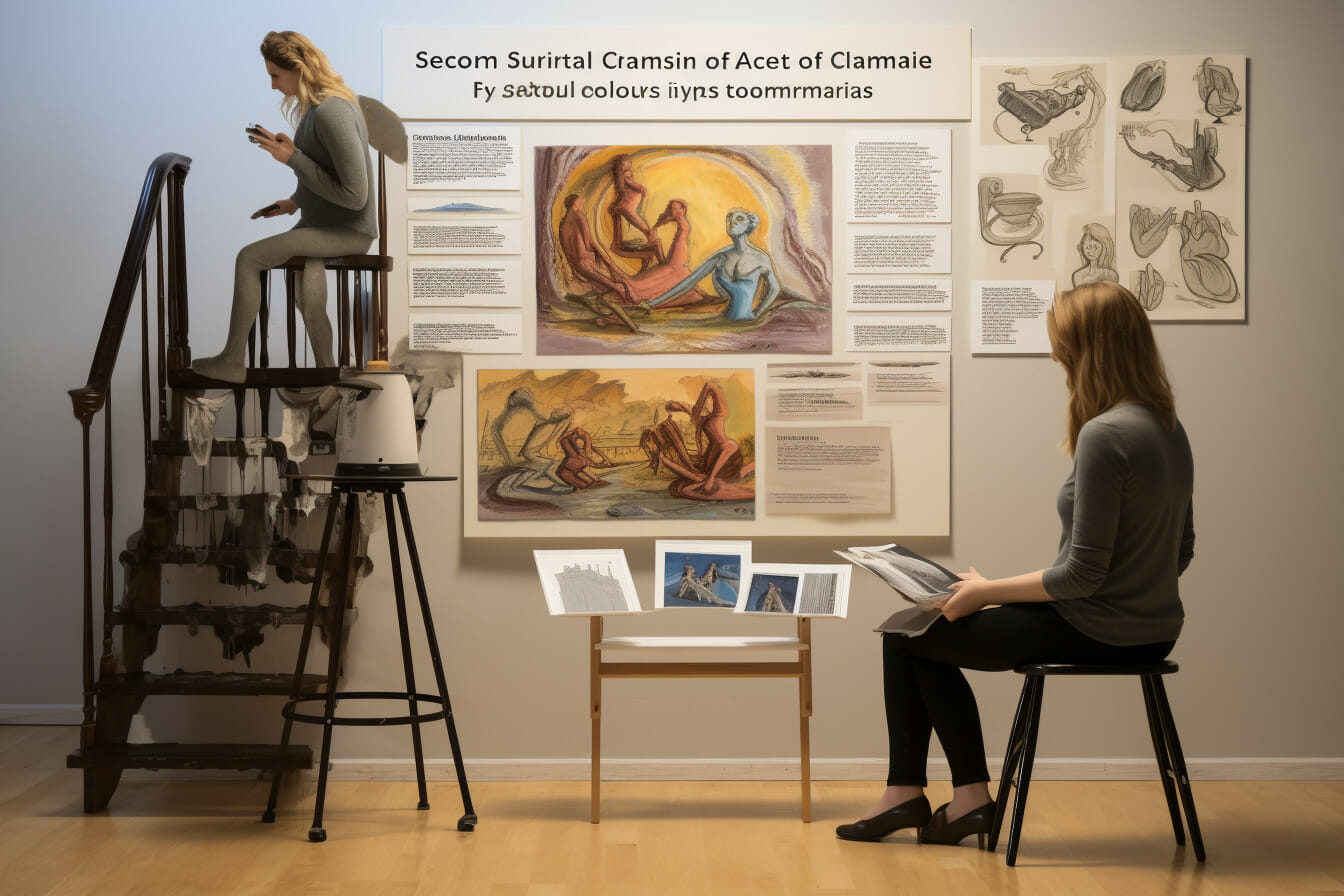Art Commissions: A Comprehensive Guide
Navigating the world of art commissions can be tricky. Whether you’re an artist or a client, understanding the process, negotiating prices, crafting contracts, and dealing with copyright issues is essential.
Don’t fret! This guide will help you master the art of commissioning, ensuring a smooth, rewarding experience. Let’s dive into the details and make your artistic journey a breeze.
Table of Contents
Understanding the Commission Process

When considering purchasing an art commission, it’s crucial to understand the process involved. It’s not as simple as picking and paying for a piece.
First, you’ll need to find an artist whose work you admire and currently accepting commissions. You can do this by researching online or visiting local galleries.
Once you’ve chosen an artist, you must discuss your vision with them. This could involve describing a scene, providing a photo for reference, or expressing a mood or feeling you want the piece to evoke.
After settling on the details, you’ll typically need to pay a deposit. This ensures the artist is compensated for their time even if you decide not to purchase the final product.
Setting and Negotiating Prices
Determining and haggling over prices can be tricky, but ensuring you’re fairly compensated for your work is essential. Don’t undersell yourself; consider the time, effort, and resources you’ll put into the project.
Start by setting a base price that reflects your skill level and the complexity of the work of art.
If a client wants to negotiate, be open but firm. It’s okay to lower your price a bit for a good relationship, but don’t compromise too much. You need to respect your worth.
Remember, it’s not just about money but also about value. Your client is paying for the art piece, your experience, creativity, and time.
So, set and negotiate your prices wisely.
Crafting Effective Contracts

Crafting effective contracts is crucial in ensuring both you and your client have clear expectations and boundaries. A well-drafted warranty covers all aspects of the commission, from payment terms to copyright issues. It’s your best tool to prevent misunderstandings and protect your interests.
Start by detailing the project specifics—what’s the artwork’s purpose, size, medium, and deadline? Then, outline your payment terms, including deposit requirements and refund policies. Don’t forget to include a clause on revision and cancellation policies. Address copyright issues clearly—will you retain all rights, or will the client have specific permissions?
Lastly, always have your contract reviewed by a legal expert. It’s an added expense but could save you from potential legal battles.
Collaborating with Clients
Working closely with clients is an essential part of any successful creative project. It’s crucial to maintain open communication channels and understand their vision clearly. Ask questions, seek clarifications, and don’t hesitate to share your ideas.
Remember, it’s a collaboration. Always respect their ideas and know when to stand your ground as the artist. Ensure to provide regular updates about the progress, which keeps them involved and fosters trust.
Learn to accept feedback; it’s not a critique of your skills but a way to align your work with their expectations. Please always stay professional, even if you have any disagreements.
Your relationship with your clients isn’t just about this one project. It’s about building long-term connections.
Navigating Copyright Issues

Navigating copyright issues isn’t just about protecting your work; it’s also about respecting the intellectual property rights of others.
As an artist, you must be wary of creating pieces that might infringe on other artists’ copyrights. Always ensure that the source materials you’re using are either in the public domain or you’ve received permission from the copyright owner.
If a client asks for a specific style, make it unique rather than copying another artist’s style. When it comes to fan art, tread carefully. While it’s often considered a form of flattery, it can also lead to legal issues if the copyright owners object.
Above all, remember integrity is critical. Respect for others’ work will help you maintain a good reputation in the art community.
Frequently Asked Questions
What is an art commission?
An art commission is when an individual or organization hires an artist to create a custom artwork according to their specifications and requirements.
How does the process of commissioning artwork?
Commissioning art typically involves contacting an artist, discussing the project details, negotiating the terms and pricing, and providing necessary reference materials or ideas. Once agreed upon, the artist starts creating the artwork, and the client may have the opportunity to give feedback and make revisions.
How much does it cost to commission a piece of art?
The cost of commissioning a piece of art varies depending on factors such as the artist’s experience, the size and medium of the artwork, the complexity of the project, and the amount of time involved. It’s best to discuss the pricing with the artist directly.
Is it better to commission art or sell art online?
Whether it’s better to commission art or sell art online depends on your goals and preferences as an artist. Commissioning art allows you to create custom pieces for individual clients while selling art online will enable you to reach a wider audience and sell multiple details.
What is the approval process for commissioned artwork?
The approval process for commissioned artwork typically involves the artist presenting the initial sketches or progress to the client for feedback and approval. The client may provide suggestions or request revisions until they are satisfied with the final result.
Can I commission an artist for a digital art piece?
Yes, many artists accept commissions for digital art pieces. Digital art allows versatility and easy reproduction, making it a popular choice for those looking for custom artwork.
Conclusion
So, you’ve navigated the art commission process, negotiated prices, and crafted contracts.
You’ve also collaborated with clients and kept copyright issues in mind.
It’s a lot, isn’t it? But don’t worry! You’ve got this.
Keep learning, evolving, and refining your process.
Soon, you’ll master the art of managing commissions like a pro.
Keep creating, selling, and, most importantly, enjoying your art.













